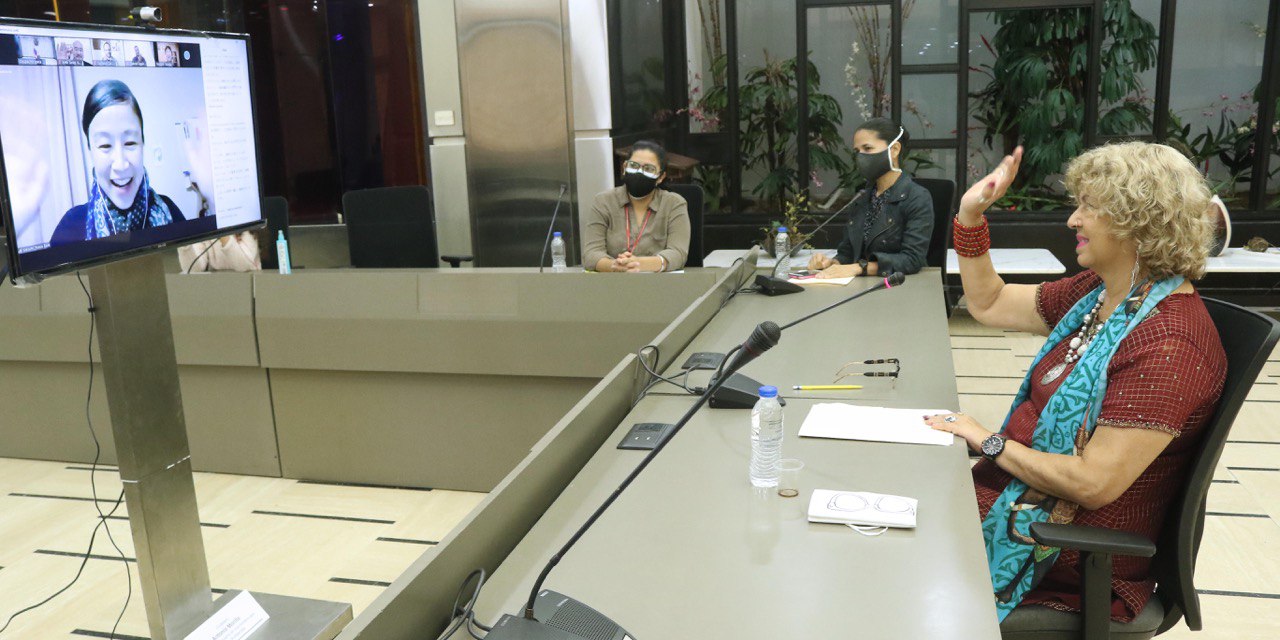“On August 6th, 1945, I was 6 years and 10 months old and I was walking to my elementary school in Hiroshima, when I saw the enemy plane fly over the city. I was soon enveloped by a mushroom-shaped cloud and got burns on my face and right arm. When the bomb exploded, I was blinded by a light, like a very strong camera flash. I got dizzy and couldn’t see anything else because it was pitch dark around me as the dust rose high and covered the sun.”
This is part of the touching testimony shared by Toshiko Tamaka, an 82-year-old hibakusha (survivor) of the atomic bombed dropped by the United States on two Japanese cities in August 1945, at an activity organized by NGO Peace Boat as part of an online project to promote “a future without wars and nuclear weapons.”
At the beginning of the activity, the Foreign Vice-minister for Asia, the Middle East and Oceania, Capaya Rodríguez, referred to the visits paid by the Peace Boat to Venezuela, where its passengers have learned about the country’s progress in education, the environment, communal organization, the National System of Orchestras, and toured Venezuela’s historical sites.
The Venezuelan Ambassador to the Philippines also extolled the wonderful work carried out by this NGO and the example it sets in the world, and reaffirmed the Bolivarian Government’s commitment to the abolition of nuclear weapons and support to all the activities held in the world to favor peace.
In her testimony, Tanaka thanked for the great contribution of the Latin American people to give hope to those who survived the atomic bombs. She said it wasn’t until she turned 70 that she found the courage to tell her painful, tragic experience, and recalled that during a Peace Boat voyage to La Guaira, Venezuela, in 2008, then Mayor Alexis Toledo encouraged her to tell the world what happened in Hiroshima in 1945. Later, she told her story to Telesur and the National Assembly TV station.
In her heartbreaking account, Tanaka said that after the bomb blast, the city was destroyed, many people were trying to escape, and their bodies were burned. Many children who lost their parents were following a crowd of people, many of whom didn’t have any burns, but died in front of her from the damage of radiation. Over the years, many survivors died of leukemia and thyroid cancer. Tanaka is still suffering from large intestine bleeding, bone fractures and cataracts.
Peace Boat is a Japan-based international NGO which promotes peace, human rights, fair sustainable development and respect for the environment.



